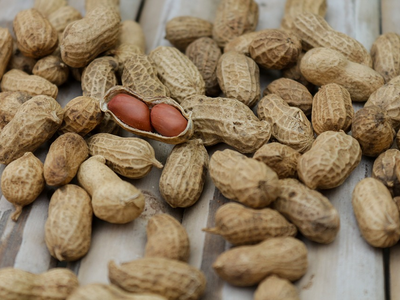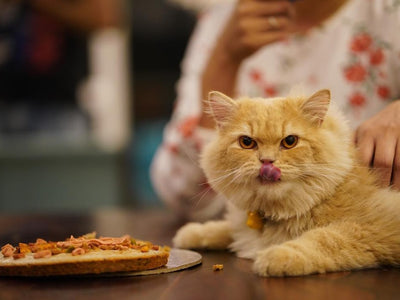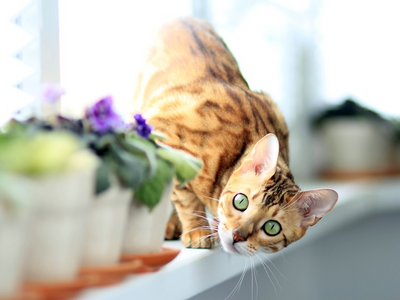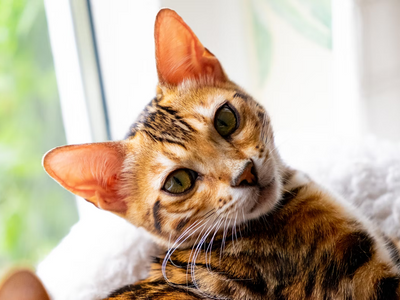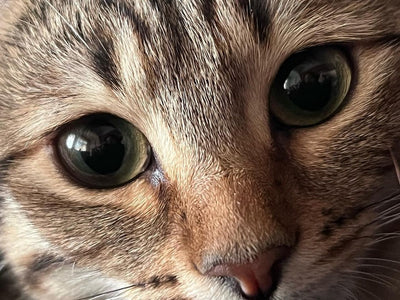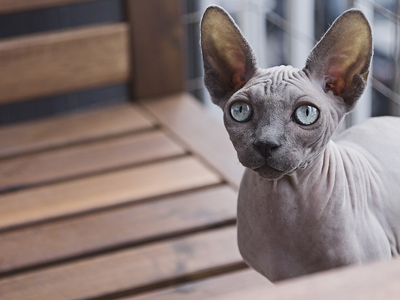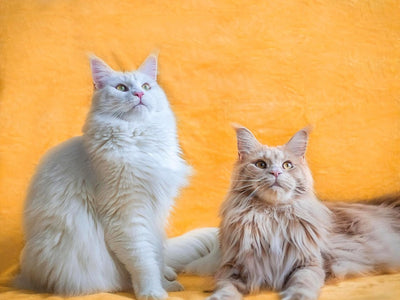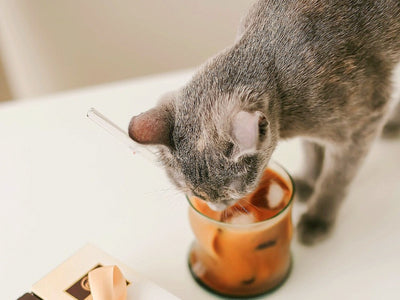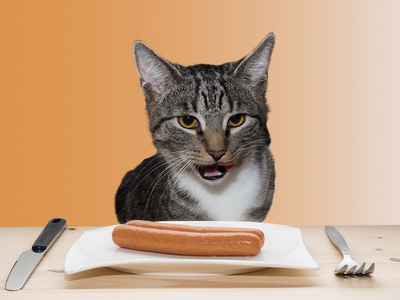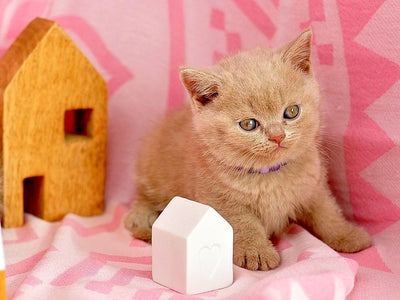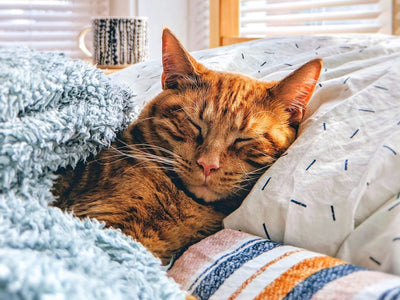07.10.2021
Is it bad to give my cat milk? The whys and why nots explained
Whether to give regular milk to cats is a blind spot to many cat parents. While this white delight can be a versatile superfood for humans, the combination of cats and cows’ milk can be an udder disaster.
Can you give your cat milk? Do cats even like to drink milk? Can giving milk to cats have life-threatening consequences? What alternative food and drinks should I offer my cat to keep them hydrated? These seem like mundane queries about feline nutriments, but having the right information is essential to keep freakish cat-astrophes at bay.
Are you bogged down by such questions or mildly anxious because your cat chugged down some milk? If yes, don’t stress because this article is your Milky Way of answers and solutions!
The horror lurking under the radar—why is milk NOT good for cats?
We’ve all stumbled upon idyllic pictures and lighthearted cartoons of cats happily slurping milk from a bowl or a saucer, like it's a complete meal. Decades of such casual everyday media representation get deeply ingrained in our brains, associating cats with milk. In reality, cats drinking cows’ milk is about as commonplace as carnivores eating grass.

Can you give milk to cats? Don’t let empty, cheesy media placements deceive you!
Source: Kennet Kjell Johansson Hultman
Cats are hardwired to survive and thrive on meat alone—any other food is either dubious junk or an insignificant nutrition source. Unfortunately, milk falls in the category of food that can harm cats. Because milk is abundant in lactose (the sugar content), a cat’s flesh-friendly digestive system is not equipped with the lactase enzyme necessary to digest it properly. What usually follows is a series of gastric disturbances that can turn unmanageable and even fatal in extreme cases.
Based on observations made by veterinarians, the consequences of adding milk to your cat’s diet can be both short- and long-term. We’ll help you get the full picture.
What does milk do to cats?
Let’s get to the meat of the matter—why can’t cats drink normal milk? The table below offers the answers you need:
|
Feeding cats milk |
Consequences |
|
Short-term |
Most adult cats can only digest a limited quantity of lactose and sugar in a go, making them lactose intolerant. Depending on the weight and build of a cat, they may face the following troubles immediately after drinking milk:
Remember that diarrhoea and dehydration can worsen rapidly and lead to a total collapse of your cat’s life-sustaining organs |
|
Long-term |
If your cat can stomach milk in the short run, it doesn’t mean it's not harming them. Cow’s milk is rich in fats and has about 120–150 calories per cup. As per vet recommended figures, cats shouldn’t have more than 30 calories in a day from non-meat sources like fruit snacks and sweet treats. Giving milk to cats can cause serious health issues, including:
The artificial growth hormones in non-organic milk increase the risk of diabetes and particular cancers in cats |
But my precious feline eyeballs me every time I pour myself some milk…
Despite all the adverse effects, the plain truth is that cats like how milk tastes. Humans and felines share the same flaw—we like to indulge in fatty food that’s hard on our hearts.
When you’re enjoying your favourite bowl of cereal and your cat stares blankly to declare they want their share, the awkwardness can escalate pretty quickly.
So, can cats have milk in moderation? The answer depends on your cat’s reaction to milk. Use this table to check what works for your cat:
|
Situation |
Solution |
|
Your cat has low milk tolerance or is allergic to it |
|
|
Your cat can handle milk |
You should still be mindful while giving milk to them and only offer a serving proportional to the size of their stomach. It’s not recommended to give more than one tablespoon of milk to a cat in a single serving |
If fat is the issue, is it healthy for cats to drink skimmed milk?
Skimmed milk may be “fat-free,” but it contains about 80–90 calories per cup, which is still higher than the daily recommended non-meat calorie intake for felines. Also, the problematic lactose content isn’t going anywhere, even if the milk is defatted.
Should cats have pasteurised milk?
Pasteurisation kills pathogens harmful to humans, but it only makes it further unfit for felines. The process also denatures proteins and kills the healthy bacteria and enzymes that help in the digestion of milk. Many cat parents have noticed that treated milk causes even harder stomach upsets in cats than fresh milk.
Can you give cats milk of other mammals?
Milk extracted from mammals is usually high in lactose and casein (a type of phosphoprotein)—both being potential allergens for felines. Typically, swapping cow’s milk with any other animal-extracted milk can be a gamble for your cat. If you want to add milk to your cat’s diet, you can try introducing them to goat’s milk that’s comparatively low in sugar content.
Goat’s milk should be less dangerous for cats and can usually be digested in under 30 minutes. To top it off, goat milk offers the following benefits:
- Accelerates healing in cats facing digestive troubles like irritable bowel syndrome (IBS)
- Contains compounds called oligosaccharides that have anti-mucous and anti-inflammatory properties
- Optimises the presence of gut bacteria with its natural probiotics mix
- Helps with diabetes management and metabolism due to its immune-boosting vitamins and minerals
If you’re feeding goat’s milk to your cat for the first time, don’t give them more than a couple of spoonfuls. Wait for 12–16 hours to observe if your cat shows signs of an allergic reaction or gastrointestinal distress. Once you’re sure the milk is not wreaking any havoc, you can offer a small serving as an occasional treat.

Partners in legen-dairy crime! Make haste—some bleaters comin’ this way.
Source: krzysztofniewolny
Do you want your cat to try other fancy mammalian milk? To be on the safe side, it’s always better to consult a feline nutritionist regarding any experimental food you want to give to your moggie.
Should you give milk extracted from plants or nuts to your cat?
Nut- or plant-based milk—like soy milk, coconut milk, or almond milk—may be free from lactose but is high in sugars. It loads up empty calories in cats and may also trigger moderate to severe allergies.
Milk for cats—heed extra caution under special circumstances
While healthy cats can tolerate a small serving of milk from time to time, you need to be super careful when giving it to:
- Sick or malnourished felines
- Pregnant queens
- Kittens
- Seniors
Should cats drink milk if they are sick or malnourished?
You need to exercise extra caution while feeding a sick or malnourished cat. We present the solutions in the following table:
|
Cat’s health status |
Can they have milk? |
|
Unwell |
It’s not prudent to give milk to a cat when they are doing poorly. A health issue implies their body is already in a crisis mode, and milk’s hard-to-digest quality won’t make the situation better |
|
Undernourished |
The fat content in milk can help a skinny cat gain weight unless you’re dealing with one who has been underfed for a long time. Cats recovering from starvation have a weakened digestive system. You can give them:
|
Are pregnant cats allowed to drink milk?
Pregnant cats need to be transitioned to a diet rich in fats and carbs to:
- Support lactation
- Boost bone density and healthy fetal growth
- Compensate for the drop in energy levels
While adding milk to your pregnant queen’s diet seems like a convenient solution, you need to consider her compromised digestive strength due to the obvious lack of space in the abdomen.
Here’s what you can do—feed a small amount of milk to your expecting cat to see if she can keep it down. If all goes well, you can add a wee bit of milk to her daily diet throughout the pregnancy and nursing period. Once her kittens are weaned, revert to her old diet to prevent her from overeating.

Feeding cows’ milk to kittens—more like fitting a square peg in a round hole.
Source: Canon EOS 7d Mark II
What about kittens? They need milk, don’t they?
Kittens need their mother’s milk for the first four to five weeks of their life. Feline milk has colostrum which helps younglings build gradual immunity against antigens. If you’re nurturing an orphaned or a rejected kitten, don’t base their diet on regular milk. You should opt for special milk for cats available as kitten formula or milk replacement powder.
Once a kitten has gained healthy weight and is ready to take on solid food, you can let them taste a dash of milk. If you see no adverse reaction, you can let them have a treat every now and then.
About a third of kittens develop lactose intolerance once they switch to solid food. If you notice a nasty bout of diarrhoea after giving milk to your kitten, immediately consult a vet for preventive or remedial treatment as an excessive loss of fluids can be fatal to young felines.
Is milk good for older cats?
Cats lose more than their agility and strength as they age. Senior cats often struggle with slow metabolism and kidney ailments, with many losing their ability to stomach milk. As a result, their system may reject milk altogether.
Many parents start giving milk to cats with dental issues, thinking it will be painless to swallow and filling at the same time. Please be aware that this is a big mistake as cats will never receive their basic nutritional needs with milk alone. It’s smarter to switch to a good quality wet cat food that’s easy on the teeth and caters to the needs of felines with a sensitive disposition.
How do I keep my cat hydrated?
Keeping a cat hydrated is a herculean task because they are not instinctively motivated to look for water. Wild cats habitually skip trips to ponds and lakes as they get their water from raw meat. Domesticated felines also avoid water with equal enthusiasm, so we human guardians must work hard to prevent dehydration.
Since milk cannot be a part of a cat’s regular diet, here are some tips to keep your cat’s hydration levels intact:
- Set up multiple water stations—Observe your cat’s favourite hangout spots around the house and put water bowls at each stop. Having water accessible in those areas will entice them to take sips throughout the day
- Clean your cat’s water bowls every day—Cats are repelled by the odour of unsanitary water or dishes because of their strong survival impulses. If you’re dealing with a fussy cat who won’t even look at water, cleaning the bowl and refilling it with fresh water might do the trick
- Offer delicious meat broths—Cats love the soupy versions of their proteins. If your cat winces at the sight of water, you can offer them unsalted chicken or bone broth to keep them hydrated. Don’t cook the broth with onions, garlic, or chives, as they are toxic to cats
- Use complementary wet food with dry food—Cats on a dry food-only diet have a higher risk of getting dehydrated. You can either mix dry food with wet food or give your cat complementary wet food snacks to keep them hydrated
- Switch them to a wet food-only diet—Some vets recommend a wet food-only diet for cats prone to dehydration as it mimics the natural moisture-rich feline nutrition

You want me to drink more water? How about you make water tastier? We’ll have a deal, promise.
Image (c) Untamed
Untamed solves your cat’s hydration woes with wet food that satiates their taste!
When it comes to milk, cats are better off as vegans—the only problem is, they’re not! Getting your cat the perfect meat-based diet that’s also big on hydration can be challenging, but not with Untamed!
At Untamed, we honour a cat’s core ancestral diet by producing tailor-made wet food that:
- Contains organic human-grade meat, free from:
- Chemical additives
- Animal derivatives
- Harmful preservatives
- Has optimum moisture content
- Offers optimal nutritional values
- Is grain-free and hypoallergenic
We offer a delectable range of gravy and jelly recipes covering the essentials of feline nutrition recommended by vets. We gently steam cook our food to ensure the micronutrients are not lost during preparation. The best part is that our food is outrageously delicious—even the pickiest of cats go mad for our yummy meat and fish meals!
Do you want to try our food for your adorable little feline? All you have to do is click here and order a trial pack of Untamed goodies!

All the right proteins in all the right places—Untamed knows the drill!
Image (c) Untamed
Untamed can be the game-changer for your cat—here’s how!
Untamed is not yet another generic cat food brand. We refuse to jump the profit-milking retail bandwagon and focus on delivering quality-only food to our precious feline clients. Commercial cat food can be loaded with sugar, cereals, vegetable proteins, slaughterhouse leftovers, and similar junk.
Untamed believes in creating real food for our cats—devoid of fillers and rich in proteins. We have first-hand experience in helping ailing cats regain their health and vitality with human-grade meat. Our happy community of cat parents has reported the following improvements after using our food regularly:
|
Timeline |
Visible improvements |
|
One week |
|
|
Six months |
|
|
One year and up |
|
Take the first step now and give your furry friend the life they deserve!
Cats are more than our cute furry companions—their comforting presence makes everything better during our darkest days. It’s only right we show them our love by giving them the best food ever!
Follow these steps to surprise your cat with a love-soaked pack of our signature items:
- Check out our TRY NOW quiz
- Tell us what your cat would like (choice of protein, food type, etc.)
- Order your sample taster pack
We will deliver our trial box of cat food to your doorstep. If your cat takes to our food, we will replenish your stash every month, so you don't have to worry about running out of food. You can cancel, pause, or postpone a delivery whenever you wish.
Cat food shouldn’t take a toll on the environment. This is why we take our carbon footprint seriously and always:
- Use recyclable packaging for our monthly cat food deliveries
- Promote ethical and sustainable food sourcing
Let’s usher in a cat food revolution—one cat at a time!

Every cat is a sanctuary to their owner. There’s no room for compromise when we’re talkin’ cat food.
Image (c) Untamed

![Associated image for What human food can Sphynx cats eat? [Comprehensive list]](http://untamed.com/cdn/shop/articles/what_human_food_can_sphynx_cats_eat_Featured_400x300_crop_center.jpg?v=1648705074)
